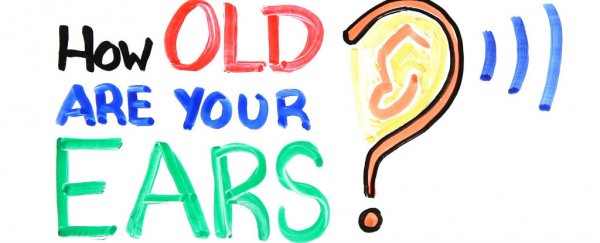Want to feel really, really old, or completely invincible and borderline bionic? Well, depending on your age, you're about to feel a little of column a, or a little of column b, because the boys from AsapSCIENCE are here to give you a quick and brutal hearing test. But before you start, some essentials - it's important to set the video to 1080p and use headphones (good quality ones, if possible) to ensure accurate results. All good? Okay let's bring the pain and watch the video above.
First up, if you can't hear a sound at 8,000 Hz, you're either hearing impaired, or not alive, because that's the point on the spectrum where everyone, regardless of their age, is capable of hearing clearly. Raise it to 12,000 Hz, and we knock out all the over-50s. At 15,000 Hz, we lose the over-40s, and at 16,000 Hz, anyone over 30 is going to be struggling to hear anything.
And here's where things get intense. At 17,000, 18,000, and 19,000 Hz, even under-25s are going to struggle to hear things, especially since YouTube has compressed the video file so the 19,000 Hz frequency has been lost. But fear not, because the It Starts With A Bang blog has sound files for everything from 8,000 Hz to 20,000 Hz, which apparently only newborn babies can hear.
So why does our hearing appear to 'age' at such a standardised rate? Within the internal structure of your ear, you've got a distinctive, spiral-shaped part called the cochlea, and it's filled with fluids and tiny hairs called cilia. As Ethan Siegel from It Starts With A Bang explains, the most sensitive cilia are the ones closest to the outside of your ear canal, which means only a tiny vibration - from very high frequencies, for example - is needed to set them in motion.
"These are also the most easily destroyed," says Siegel. "So when you do things to damage your hearing like go to rock concerts without earplugs, listen to your headphones or stereos too loudly, fire a gun without protective gear, or have your 'friend' scream in your ear, these sensitive cilia get destroyed. The bad news? Once they're destroyed, they pretty much never grow back."
Depressed much? Yep, I'm right there with you. You don't appreciate a good cilia until it's gone.
Watch the video from AsapSCIENCE above to test your own ears, and apologise to your dog for the annoyance if you forgot your headphones.
